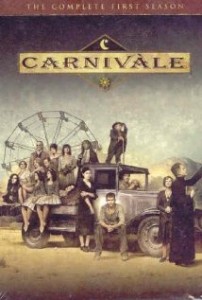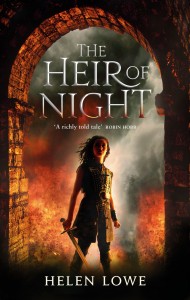The Most-Read Posts of “…on Anything, Really” in 2012: Tropes Not Cliches—More thoughts on Making Epic Fantasy New & The Importance of Character
Introduction:
I wrote this post very early in 2012—but it’s good to see that it came in as one of the top 10 posts on the blog this year, particularly as it is heartland territory for me, traversing why I’m writing epic and some of the important drivers for my writing as well, especially around character.
So without further ado, here it is…
—
Tropes Not Cliches: More Thoughts On Making ‘Epic Fantasy New’ & The Importance of Character
On Saturday I cross-posted to a guest post on SF Signal, titled “Making Epic Fantasy New–Do We Need To?” (to find out my conclusion, you’ll have to check out the post, here) in which, amongst other matters, I discussed tropes and my personal view that every class of ficton has its own set.
On Friday, my post, here, marked the UK mass market release of The Heir of Night (with that funky new cover everyone seems to be liking!) Although I was mainly cross-posting to my UK publisher Orbit’s blog, I did add a few thoughts on how the big ideas behind a story have to work their way out through the characters.
I’ve been thinking a bit about both posts since, because I think there is an overlap. In both posts I come right out and say that I’m unashamedly writing classic epic fantasy. Yes, epic has tropes, but so does every style of fiction, and these happen to be tropes that I’ve always loved—of quests, high adventure and strange magic, heroism, friendship and love. However, I did think Paul’s comment on the “Making Epic Fantasy New” guest post, was also very valid:
“I think there is plenty of life in the old Tropes, if they are told well. That’s the key, though. Painting straight by the numbers gives any genre, especially one as prominent and large as epic fantasy, a bad name.”
To me, what Paul is underlining is the difference between a trope and a cliche. And avoiding cliche’s is where the characters come in. For example, I watched the first two episodes of Carnivale again over the weekend and it struck me that of course the central character of Ben Hawkins is literally the classic epic fantasy trope of a farm boy with a destiny. And although Carnivale is set in the Great Depression in the USA, and not a medieval Europe lookalike, it’s still very much epic fantasy in its conception, with forces of light and dark contending, the band of companions and plenty of strange magic, not to mention the farm boy with a destiny and superpowers.
 But here’s the thing—I had never consciously noticed the trope when watching Carnivale previously. The reason for that, I believe, is because Ben Hawkins is not a cliche. As soon as he appears at the opening of the story he is very much a real person and distinct character—definitely not done by the numbers. I suspect the wonderful evocation of the world of the 1930s dust bowl also helps erode a feeling of cliche, even if the opening narration speaks very clearly of forces of light and darkness and the conflict-without-end between them.
But here’s the thing—I had never consciously noticed the trope when watching Carnivale previously. The reason for that, I believe, is because Ben Hawkins is not a cliche. As soon as he appears at the opening of the story he is very much a real person and distinct character—definitely not done by the numbers. I suspect the wonderful evocation of the world of the 1930s dust bowl also helps erode a feeling of cliche, even if the opening narration speaks very clearly of forces of light and darkness and the conflict-without-end between them.
So I was brought back to one of my assertions in the “Making Epic Fantasy New” post: “the thing I believe drives storytelling more than anything else, regardless of genre, is the level of interest in the characters …”
And also to my Friday post on The Heir of Night, which is both classic epic fantasy in its conception, but also very much character-driven storytelling. In addition to the two central protagonists, Malian and Kalan, I also discussed Malian’s father, the Earl of Night, and how even if not easily likeable, I hoped he would prove an interesting character for readers.
If that proves to be the case, then I also regard it as an achievement, because in his earliest conception he was definitely a cliche, ie ‘the tyrannical father.’ But as soon as I got into the guts of the story, that take on ‘who he was’ felt really unsatisfying to me. Sure it would have made writing the story a whole lot easier of he could have just been straight-out unsympathetic, but I really felt that character type wasn’t a trope—it was a cliche and a really boring one at that. In fact, pursuing it would have made Malian into a cliche as well, i.e. “feisty rebellious daughter” who opposes “tyrannical father”—and as I said in my “The Evolution of Character” post on Orbit, the whole thing about Malian is that she isn’t rebellious. She actually has a really high sense of duty and has grown up knowing and accepting both her destiny and duty as Heir of Night.
So if Malian wasn’t to be a cliche, then it wasn’t going to work casting her father, the Earl, as a cliche either—besides my being bored by that whole “rebellious daughter/tyrannical father” scenario. But what it did mean was that I had to spend a great deal of time thinking about why the Earl became the way he is (discussed on Friday so I won’t repeat here), and the forces that constrain him into a square that it’s equally important Malian thinks outside. I suspect a whole lot of that background thinking will never make it directly into the book, but my hope is that it helps make the characters and their relationship with each other authentic, real even, however classically epic-heroic the stage on which they play their parts.
—
To see the original post, including comments, please click here.









And now having read 2 volumes of her story, Malian is definitely NOT a cliche.
Happy New year, Paul! Good to hear that you feel Malian passes the “not-cliche” test.:)
OMG Carnivale! More proof you are awesome. 🙂 I paid for HBO for a year just so I could watch that show. I’m still sad the creator didn’t get to finish telling his story (last I heard, he was still considering doing some graphic novels…I can only hope.)
And you make some great points. It’s not so much the elements as the execution.
Yup, Carnivale! 😉 And yes, also very sorry that it didn’t get to play out–but graphic novels could be good!
Glad you liked the post, too.:)